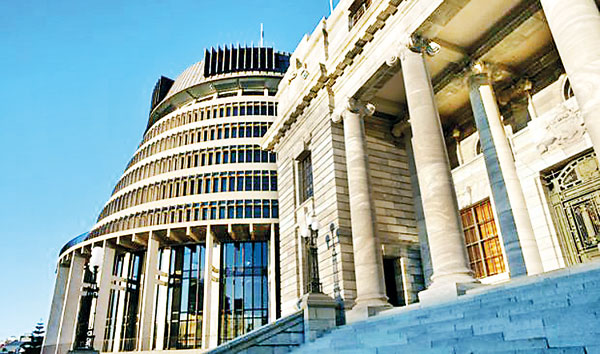New Zealand funding boost ‘a step in the right direction’
View(s): A modest increase in funding for New Zealand’s universities appears unlikely to keep pace with their costs, but it is more than they received this time last year.
A modest increase in funding for New Zealand’s universities appears unlikely to keep pace with their costs, but it is more than they received this time last year.
The Labour government has unveiled a 1.8 per cent increase to the student achievement component – the portion of tuition costs paid by the government – as part of its 2019 budget. While that figure roughly matches inflation, representative group Universities New Zealand (UNZ) said that the principal contributor to institutional costs – salaries – was rising considerably more quickly.
Nevertheless, the boost is welcome news after an effective funding freeze last year, when the government’s first budget allocated almost no additional money to higher education – with all available cash directed to pay for Labour’s election promise to phase out tuition fees.
UNZ chairman Derek McCormack said this year’s increase was “a move in the right direction”, but that the government would need “to ensure sustainable baseline funding for future years”.
“Universities are under huge pressure to maintain quality,” said Professor McCormack, vice-chancellor of the Auckland University of Technology. “And NZ needs a high-quality university system to help the government deliver on its own aims. Universities can be – and want to be – part of the holistic solution to many of the concerns outlined by the government in this budget. And we need to be resourced to help deliver that solution.”
The “well-being budget” – so-called because it specifies how spending will affect indicators of public welfare, as well as traditional economic measures – has allocated an extra NZ$1.9 billion (£1 billion) to mental health services and NZ$1.1 billion to reduce child poverty.
Tertiary education received comparatively little, with most of it going to vocational education. The government said it would invest an extra NZ$197 million in vocational education reform, using money originally allocated to eliminate fees at both universities and vocational colleges.
“The government initially budgeted for ‘fees free’ at the upper end of potential demand,” education minister Chris Hipkins said in a statement. “We are now in a position to reallocate funding to another part of tertiary education.”
UNZ executive director Chris Whelan said the 1.8 per cent increase would apply to the government-subsidised portion of funding – typically, about two-thirds – of each student’s place.
It was not yet clear whether the rise would also be applied to fees free funding, currently available to first-year students without prior degrees.
Mr Whelan said the 1.8 per cent hike was “not a bad increase”, but that wages were forecasted to grow at more than 3 per cent annually. “We still have a risk long-term that our funding is going to be insufficient,” he said.
“But we recognise that there’s an awful lot of call on the budget. Generally it’s a step in the right direction.”
Mr Whelan said universities would also benefit from a budget allocation to fund more than 1,400 extra initial teacher education places. He also anticipated future expansion of university places for social workers and clinical psychologists to help realise the government’s welfare goals.
- Courtesy- J.Ross -THE


